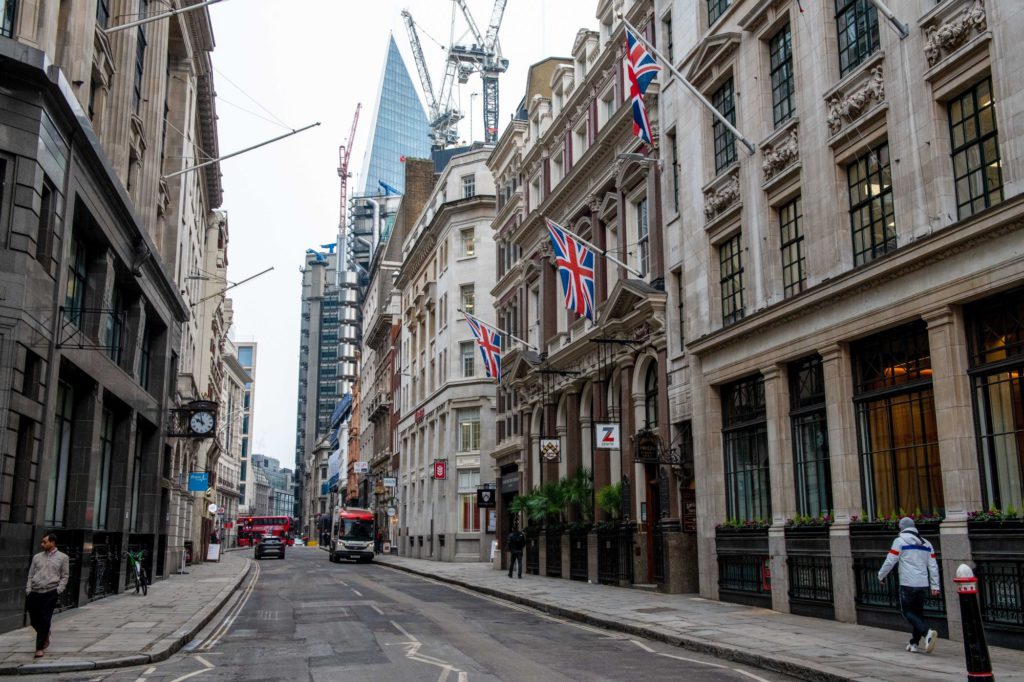Train strikes and freezing weather have left London’s business districts deserted this week as thousands of financial professionals work from home to avoid disrupted commutes.
(Bloomberg) — Train strikes and freezing weather have left London’s business districts deserted this week as thousands of financial professionals work from home to avoid disrupted commutes.
Office occupancy plunged to 22% in the capital on Tuesday, the first official day of the strikes — down from 51% a week earlier, according to Freespace, a workplace company that tracks the data.
Even fewer people were at their desks on Monday, the company said. While strikes had not yet begun, many trains out of the City were delayed or canceled at the start of the week following a bout of snowfall.
Separate figures from Springboard, a retail data company, showed that footfall in shops near offices in central London was more than 30% lower Tuesday than a week earlier, indicating that many City employees have decided to work remotely for the entire week in light of the strikes.
Rail workers are striking across the UK on Dec. 13, 14, 16 and 17 this week, with more walkouts planned over Christmas and into the new year.
“Pubs, restaurants, bars and hotels are tearing their hair out over no-shows and cancellations,” said Tina McKenzie, policy chair of the Federation of Small Businesses. “Small firms want a rapid resolution to the situation, with all parties reaching an agreement to keep the economy on track and people’s livelihoods afloat.”
The UK government has insisted it cannot afford to give public sector workers pay rises that keep pace with inflation, which has risen above 11%. Alongside rail staff, strikes are also being held by nurses, ambulance drivers, postal workers and civil servants.
Prime Minister Rishi Sunak told the BBC in an interview on Tuesday that pay deals must be responsible so that the government can “get a grip of inflation” which is “eating into people’s living standards.”
“We are taking a reasonable and fair approach and I’d ask the union leaders to engage with that and end this disruption, particularly at Christmas time, it’s going to make an enormous negative difference to people’s lives,” Sunak said. “There’s no need for it and I hope that we can find a way through.”
The rail strikes are opposed by half of Britons, according to polling data from Kantar. Train workers enjoy less public support than other workers, with most sympathy directed toward nurses, ambulance staff and firefighters.
Figures released by researcher Savanta ComRes also showed that 56% of the public say that railway workers should not take industrial action during the holiday period, with support slipping 8 points since October.
–With assistance from Alex Morales.
(Updates office occupancy data in second and third paragraphs.)
More stories like this are available on bloomberg.com
©2022 Bloomberg L.P.










